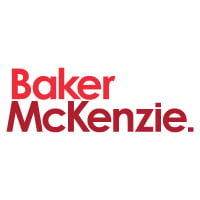

Senior legal director Andean region | Visa



Katherine Rueda Chavez
Senior legal director Andean region | Visa
How do you approach managing legal aspects during periods of instability or crises, and how does your legal strategy align with the broader business strategy to ensure the organisation’s resilience?
A lawyer that is practical, strategic and knows about the business is specially valued in time of crisis. I believe that during periods of instability, it is of vital to be an ally for the business, to be able to provide best-in-class legal advice on the challenges the company faces, acting with quick decisions and providing advice aligned with the business needs.
After the Covid-19 Pandemic hit, managing crisis is no longer a hypothetical scenario. Companies have strengthened their procedures to prepare for the next crisis. As part of such procedures, companies expect from us, leaders in the legal field, to help the business to navigate through the challenges with a clear and open line of communication with all stakeholders, they demand our adaptability to new laws and regulations and our soft skills to collaborate with other functions to understand the wider implications of the crisis and ensure a coordinated response.
In addition to state-of-the-art security technologies deployed to ensure organisation resilience, part of the business strategy in times of crisis requires the deployment of communications protocols and cross-functional exercises involving multiple response and recovery teams. During the implementation of such protocols and exercises, the participation of the legal team is key to ensure that any course of action is aligned with local laws and regulations, ensure that the company is well protected and to provide the business with the legal implications to consider to adopt adequate decisions.
What are the most significant cases and/or transactions that your legal team has recently been involved in?
During fiscal year 2024, had the opportunity to work on the renewal of important partnerships such us the regional deal with Rappi to offer Visa products in Colombia, Mexico, Peru, Brazil and Chile.
Also, I have worked on a partnership with Aavance, a digital wallet designed to promote financial inclusions of Venezuelan’s migrant.
The regulatory front in the Andean region has been active. In the past months, I had the opportunity to work closely with the Colombian Central Bank on the regulation that allows card payment systems to be used for the transfer of remittances and other crossborder payment. The regulation in the payment industry has also been evolving in Peru and Ecuador,
I’ve also been involved in different discussions with regulators and led different legal impact assessments of the regulations approved in the region.
Finally, a significant amount of time has been focused on the identification and design of solutions to implement efficiencies in the contracting process of the Company. As part of such efforts, we had the opportunity to lead initiatives to create pre-approved contract templates for all Latin America countries helping Visa to sell faster its services and products.
What emerging technologies do you see as having the most significant impact on the legal profession in the near future, and how do you stay updated on these developments?
I’m a firm believer that generative artificial intelligence (AI) is changing the legal practice the way we know it, specially in areas like document review, legal research, and contract analysis. Every lawyer should invest on learning how to use AI to increase productivity, efficiency and to allow us to focus on strategic matters and complex work.
Learn how to use AI and other technologies to your advantage. This can increase productivity, accuracy, and efficiency, allowing you to take on more clients or delve into more complex work.
Lawyers have a crucial role in making ethical decisions and providing counsel, a function that cannot be fulfilled by AI.
Senior managing counsel, senior director Andean region | Visa